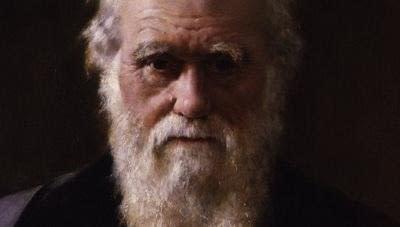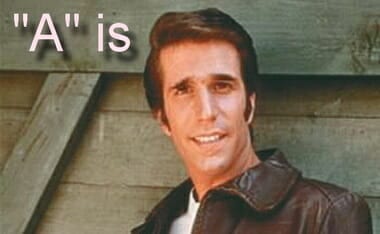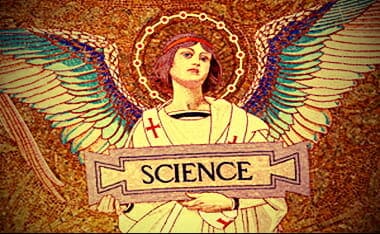ORIGINALLY POSTED IN JANUARY OF 2014
Jump to Bradley Monton’s Isaac Newton and the methodological method.
- Newton is a leading contributor to the scientific worldview, and yet he does not bind himself by the assumption of uninterruptible natural law ~ Bradley Monton
- The divine art of miracle is not an art of suspending the pattern to which events conform but of feeding new events into that pattern ~ CS Lewis
- Meredith’s whole argument about ID, miracles, and the so-called “breaking” of natural laws is nothing but a red herring. Again, the real issue is about the nature of causation not about natural law ~ Michael Flannery
In the most recent issue of FIRST THINGS (February 2014), Stephen Meredith attempted to critique Intelligent Design theory, by, essentially creating straw-men arguments or by debating issues others have dealt with well.
Later in this “short” review of topics that caught my critical eye, we will see the similar vein John Derbyshire takes in the January/February (2014) issue of The American Spectator in comparing ID to Islam.
AT LEAST American Spectator had the foresight to have an alternative view side-by-side, so you get to see what an erudite, idea filled presentation looks like (Stephen Meyer’s)…
— a portion of which I will publish at the bottom from a magazine I recommend highly —
…alongside another filled with fallacious arguments, non-sequiturs, and a lack of intelligence in laying out a positive case (John Derbyshire).
First, however, my mind went immediately to David Hume and CS Lewis after reading the following from Stephen Meredith in the First Things article:

…The metaphysics of ID is occasionalist. It holds, to abbreviate the doctrine rather drastically, that causation is an illusion; that everything happens because God makes it happen.
Why does ice float on water? Aristotle thought it was a matter of shape (see On the Heavens, IV.6). Science says it’s because ice is less dense than water. The occasionalist says it’s because God wills it so….
…But: Ice floats on water because God wills it so? Oh.
(David Hume: The Essential Philosophical Works, eBook, [2012], pages 662 and 663)
1. Miracles are violations of the laws of nature
2. These laws have been established by ‘firm and unalterable’ experience
3. Therefore, the argument against miracle is as good as any argument from experience can be
B. Argument from the uniformity of experience:
1. Unusual, yet frequently observed, events are not miracles – like a healthy person suddenly dropping dead
2. A resurrection would be a miracle because it has never been observed anywhere at any time
3. There is uniform experience against every miraculous event, otherwise it would not be called miraculous
Dr. Lennox continues:
Argument 1. Hume says that accounts of miracles ‘are observed chiefly to abound among ignorant and barbarous nations’ (op.cit. p.79).
Fallacy. In order to recognize some event as a miracle, there must be some perceived regularity to which that event is an apparent exception! You cannot recognize something which is abnormal, if you do not know what is normal. Example: 1) virgin conception of Jesus; 2) conception of John the Baptist.
Argument 2. Now that we know the laws of nature, belief in miracles is impossible.
Fallacy. The danger of confusion between legal and scientific use of word law. Why it is inaccurate and misleading to say that miracles ‘violate’ the laws of nature. It is rather, that God feeds new events into the system from time to time. There is no alteration to or suspension of the laws themselves.
‘If God annihilates or creates or deflects a unit of matter, He has created a new situation at that point. Immediately all nature domiciles this new situation, makes it at home in her realm, adapts all other events to it. It finds itself conforming to all the laws. If God creates a miraculous spermatozoon in the body of a virgin, it does not proceed to break any laws. The laws at once take over. Nature is ready. Pregnancy follows, according to all the normal laws, and nine months later a child is born’ (C.S Lewis, Miracles. p.63).
By the “laws of Nature” such a man means, I think, the observed course of Nature. If he means anything more than that he is not the plain man I take him for but a philosophic Naturalist and will be dealt with in the next chapter. The man I have in view believes that mere experience (and specially those artificially contrived experiences which we call Experiments) can tell us what regularly happens in Nature. And he finks that what we have discovered excludes the possibility of Miracle. This is a confusion of mind.
Granted that miracles can occur, it is, of course, for experience to say whether one has done so on any given occasion. But mere experience, even if prolonged for a million years, cannot tell us whether the thing is possible. Experiment finds out what regularly happens in Nature: the norm or rule to which she works. Those who believe in miracles are not denying that there is such a norm or rule: they are only saying that it can be suspended. A miracle is by definition an exception.
[….]
The idea that the progress of science has somehow altered this question is closely bound up with the idea that people “in olden times” believed in them “because they didn’t know the laws of Nature.” Thus you will hear people say, “The early Christians believed that Christ was the son of a virgin, but we know that this is a scientific impossibility.” Such people seem to have an idea that belief in miracles arose at a period when men were so ignorant of the cause of nature that they did not perceive a miracle to be contrary to it. A moment’s thought shows this to be nonsense: and the story of the Virgin Birth is a particularly striking example. When St. Joseph discovered that his fiancee was going to have a baby, he not unnaturally decided to repudiate her. Why? Because he knew just as well as any modern gynaecologist that in the ordinary course of nature women do not have babies unless they have lain with men. No doubt the modern gynaecologist knows several things about birth and begetting which St. Joseph did not know. But those things do not concern the main point—that a virgin birth is contrary to the course of nature. And St. Joseph obviously knew that. In any sense in which it is true to say now, “The thing is scientifically impossible,” he would have said the same: the thing always was, and was always known to be, impossible unless the regular processes of nature were, in this particular case, being over-ruled or supplemented by something from beyond nature. When St. Joseph finally accepted the view that his fiancee’s pregnancy was due not to unchastity but to a miracle, he accepted the miracle as something contrary to the known order of nature. All records
[….]
It is therefore inaccurate to define a miracle as something that breaks the laws of Nature. It doesn’t. If I knock out my pipe I alter the position of a great many atoms: in the long run, and to an infinitesimal degree, of all the atoms there are. Nature digests or assimilates this event with perfect ease and harmonises it in a twinkling with all other events. It is one more bit of raw material for the laws to apply to, and they apply. I have simply thrown one event into the general cataract of events and it finds itself at home there and conforms to all other events. If God annihilates or creates or deflects a unit of matter He has created a new situation at that point. Immediately all Nature domiciles this new situation, makes it at home in her realm, adapts all other events to it. It finds itself conforming to all the laws. If God creates a miraculous spermatozoon in the body of a virgin, it does not proceed to break any laws. The laws at once take it over. Nature is ready. Pregnancy follows, according to all the normal laws, and nine months later a child is born. We see every day that physical nature is not in the least incommoded by the daily inrush of events from biological nature or from psychological nature. If events ever come from beyond Nature altogether, she will be no more incommoded by them. Be sure she will rush to the point where she is invaded, as the defensive forces rush to a cut in our finger, and there hasten to accommodate the newcomer. The moment it enters her realm it obeys all her laws. Miraculous wine will intoxicate, miraculous conception will lead to pregnancy, inspired books will suffer all the ordinary processes of textual corruption, miraculous bread will be digested. The divine art of miracle is not an art of suspending the pattern to which events conform but of feeding new events into that pattern.
[….]
A miracle is emphatically not an event without cause or without results. Its cause is the activity of God: its results follow according to Natural law. In the forward direction (i.e. during the time which follows its occurrence) it is interlocked with all Nature just like any other event. Its peculiarity is that it is not in that way interlocked backwards, interlocked with the previous history of Nature. And this is just what some people find intolerable. The reason they find it intolerable is that they start by taking Nature to be the whole of reality. And they are sure that all reality must be interrelated and consistent. I agree with them. But I think they have mistaken a partial system within reality, namely Nature, for the whole.
CS Lewis, Miracles (New York, NY: Touchstone Publishers, 1996), 62-63, 64-65, 80-81, 81-82.
This is mainly the point Michael Flannery makes near the end of this portion of his critique of the First Things article, entitled: “Writing in First Things, Stephen Meredith Offers Confusion in the Guise of Critique“:
1) a faulty view of ID’s relationship to nature, miracles, and the supernatural;
2) no clear definition of what ID really is; and
3) an erroneous view of much of the history related to ID, evolution, and theology.
In company with John Derbyshire, Meredith, insists that ID proponents are “occasionalists,” holding to a particular theological understanding of causation. As occasionalists they do “not credit natural or physical law with enough causal power to enact evolution on its own.” Instead they “educe supernatural causes to do most of the heavy lifting in worldly events.” This is a fundamental misunderstanding. ID does not require the “breaking” of natural law or the notion that a natural law would have done X but instead Y happened. As William A. Dembski has pointed out, ID doesn’t need this “counterfactual substitution.” People act, for example, as intelligent agents not by “breaking” or “suspending” natural laws but by arranging or front-loading laws to suite particular ends (The Design Revolution, pp. 181-182). Meredith seems to argue that ID is incongruous with modern science because it invokes miracles and yields to supernatural causes. Here Meredith is making an old mistake, called out again by Dembski: “The contrast between natural law and supernatural causes is the wrong contrast. The proper contrast is between undirected natural causes on the one hand and intelligent causes on the other” (p. 189).
Furthermore, Meredith’s concern regarding miracles contravening natural laws seems to suggest a position of tension between the miraculous and science itself. However, this is not a scientific position. It is a philosophical one suggestive of methodological naturalism. “Scientists, as scientists,” Norman Geisler explains, “need not be so narrow as to believe that nothing can ever count as a miracle. All a scientist needs to hold is the premise that every event has a cause and that the observable universe operates in an orderly way” (Baker Encyclopedia of Christian Apologetics, p. 467). Meredith’s whole argument about ID, miracles, and the so-called “breaking” of natural laws is nothing but a red herring. Again, the real issue is about the nature of causation not about natural law…
Even atheist philosophers refute the idea that to incorporate a theistic view into nature is NOT anti-science, and works within the scientific paradigm:

Here’s the first of Pennock’s arguments against methodological naturalism that I’ll consider:
allowing appeal to supernatural powers in science would make the scientist’s task too easy, because one would always be able to call upon the gods for quick theoretical assistance…. Indeed, all empirical investigation beyond the purely descriptive could cease, for scientists would have a ready-made answer for everything.
This argument strikes me as unfair. Consider a particular empirical phenomenon, like a chemical reaction, and imagine that scientists are trying to figure out why the reaction happened. Pennock would say that scientists who allow appeal to supernatural powers would have a ready-made answer: God did it. While it may be that that’s the only true explanation that can be given, a good scientist-including a good theistic scientist—would wonder whether there’s more to be said. Even if God were ultimately the cause of the reaction, one would still wonder if the proximate cause is a result of the chemicals that went into the reaction, and a good scientist—even a good theistic scientist—would investigate whether such a naturalistic account could be given.
To drive the point home, an analogy might be helpful. With the advent of quantum mechanics, scientists have become comfortable with indeterministic events. For example, when asked why a particular radioactive atom decayed at the exact time that it did, most physicists would say that there’s no reason it decayed at that particular time; it was just an indeterministic event!’ One could imagine an opponent of indeterminism giving an argument that’s analogous to Pennock’s:
allowing appeal to indeterministic processes in science would make the scientist’s task too easy, because one would always be able to call upon chance for quick theoretical assistance…. Indeed, all empirical investigation beyond the purely descriptive could cease, for scientists would have a ready-made answer for everything.
It is certainly possible that, for every event that happens, scientists could simply say “that’s the result of an indeterministic chancy process; there’s no further explanation for why the event happened that way.” But this would clearly be doing bad science: just because the option of appealing to indeterminism is there, it doesn’t follow that the option should always be used. The same holds for the option of appealing to supernatural powers.
As further evidence against Pennock, it’s worth pointing out that prominent scientists in the past have appealed to supernatural powers, without using them as a ready-made answer for everything. Newton is a good example of this—he is a devout theist, in addition to being a great scientist, and he thinks that God sometimes intervenes in the world. Pennock falsely implies that this is not the case:
God may have underwritten the active principles that govern the world described in [Newton’s] Principia and the Opticks, but He did not interrupt any of the equations or regularities therein. Johnson and other creationists who want to dismiss methodological naturalism would do well to consult Newton’s own rules of reasoning….
But in fact, Newton does not endorse methodological naturalism. In his Opticks, Newton claims that God sometimes intervenes in the world. Specifically, Newton thinks that, according to his laws of motion, the orbits of planets in our solar system are not stable over long periods of time, and his solution to this problem is to postulate that God occasionally adjusts the motions of the planets so as to ensure the continued stability of their orbits. Here’s a relevant passage from Newton. (It’s not completely obvious that Newton is saying that God will intervene but my interpretation is the standard one.)
God in the Beginning form’d Matter in solid, massy, hard, impenetrable, moveable Particles … it became him who created them to set them in order. And if he did so, it’s unphilosophical to seek for any other Origin of the World, or to pretend that it might arise out of a Chaos by the mere Laws of Nature; though being once form’d, it may continue by those Laws for many Ages. For while Comets move in very excentrick Orbs in all manner of Positions, blind Fate could never make all the Planets move one and the same way in Orbs concentrick, some inconsiderable Irregularities excepted, which may have risen from the mutual Actions of Comets and Planets upon one another, and which will be apt to increase, till this System wants a Reformation…. [God is] able by his Will to move the Bodies within his boundless uniform Sensorium, and thereby to form and reform the Parts of the Universe….
A scientist who writes this way does not sound like a scientist who is following methodological naturalism.
It’s worth noting that some contemporaries of Newton took issue with his view of God occasionally intervening in the universe. For example, Leibniz writes:
Sir Isaac Newton and his followers also have a very odd opinion concerning the work of God. According to them, God Almighty needs to wind up his watch from time to time; otherwise it would cease to move. He had not, it seems, sufficient foresight to make it a perpetual motion.”
Note, though, that Leibniz also thought that God intervened in the world:
I hold that when God works miracles, he does not do it in order to supply the wants of nature, but those of grace.
Later investigation revealed that in fact planetary orbits are more stable than Newton thought, so Newton’s appeal to supernatural powers wasn’t needed. But the key point is that Newton is willing to appeal to supernatural powers, without using the appeal to supernatural powers as a ready-made answer for everything.
Pennock says that “Without the binding assumption of uninterruptible natural law there would be absolute chaos in the scientific worldview.” Newton’s own approach to physics provides a good counterexample to this—Newton is a leading contributor to the scientific worldview, and yet he does not bind himself by the assumption of uninterruptible natural law.
Bradley Monton, Seeking God in Science: An Atheist Defends Intelligent Design, (Peterborough, Ontario [Canada]: Broadview Press, 2009), 62-64.
How one can go from the above rational positions by a Christian (CS Lewis), and an atheist (Bradley Monton), to comparing floating ice as an unnatural event held in situ by God’s continuous miraculous intervention. And then compare this straw-man to the Islamic understanding of extreme fideistic occasionalism?
An important object of metaphysical reflection is God’s nature, or the properties of that nature. Is God simple or complex? If omniscience, omnipotence, and beauty are part of the divine perfection, what exactly are these properties? Is timeless eternity part of God’s perfection? Can an omnipotent being will that there be a four-sided triangle or change the past? Does an omniscient being know the future actions of free agents? (If so, how can they be free?) Does an omniscient being who is timelessly eternal know what time it is now?
IN a great presentation from True U. (Focus on the Family store | Discovery Institute), Dr. Stephen Meyer shows how — by using the supposition from Hinduism that the earth sits atop a turtle used by Stephen Hawking’s — the materialist position differs little from this religious supposition. This video is to replace an old, defunct, MRCTV video uploaded early 2014, but here today (11/4/2023). I added a William Provine clip from his 1994 debate with Phillip Johnson at Stanford. The entire debate can be see HERE.
Colin Patterson [1978] (Dr. Patterson was Senior Principal Scientific Officer of the Paleontology Department of the British Museum of Natural History in London.)
Bradley Monton, author of Seeking God in Science: An Atheist Defends Intelligent Design ~ Apologetics315 h/t
Likewise one of the most celebrated pediatric surgeons in the world, whom a movie was made after, “Gifted Hands,” is a young earth creationist. And the inventor of the MRI, a machine that diagnosed my M.S., is also a young earth creationist.
Evolutionary Darwinism is first and foremost an “historical science” that has many presuppositions that precede it, making it a metaphysical belief, a philosophy, as virulent anti-creationist philosopher of science, Michael Ruse explains:
Michael Ruse, “Saving Darwinism from the Darwinians,” National Post (May 13, 2000), p. B-3. (Via ICR)
….Nevertheless, there is a second, and arguably deeper, mystery associated with the Cambrian explosion: the mystery of how the neo-Darwinian mechanism of natural selection and random mutation could have given rise to all these fundamentally new forms of animal life, and done so quickly enough to account for the pattern in the fossil record. That question became acute in the second half of the twentieth century as biologists learned more about what it takes to build an animal.
In 1953 when Watson and Crick elucidated the structure of the DNA molecule, they made a startling discovery, namely, its ability to store information in the form of a four-character digital code. Strings of precisely sequenced chemicals called nucleotide bases store and transmit the assembly instructions—the information—for building the crucial protein molecules that the cell needs to survive. Just as English letters may convey a particular message depending on their arrangement, so too do certain sequences of chemical bases along the spine of a DNA molecule convey precise information. As Richard Dawkins has acknowledged, “the machine code of the genes is uncannily computer-like.” Or as Bill Gates has noted, “DNA is like a computer program, but far, far more advanced than any software ever created.”
The Cambrian period is marked by an explosion of new animals exemplifying new body plans. But building new animal body plans requires new organs, tissues, and cell types. And new cell types require many kinds of specialized or dedicated proteins (e.g., animals with gut cells require new digestive enzymes). But building each protein requires genetic information stored on the DNA molecule. Thus, building new animals with distinctive new body plans requires, at the very least, vast amounts of new genetic information. Whatever happened during the Cambrian not only represented an explosion of new biological form, but it also required an explosion of new biological information.
Is it plausible that the neo-Darwinian mechanism of natural selection acting on random mutations in DNA could produce the highly specificarrangements of bases in DNA necessary to generate the protein building blocks of new cell types and novel forms of life?
According to neo-Darwinian theory, new genetic information arises first as random mutations occur in the DNA of existing organisms. When mutations arise that confer a survival advantage, the resulting genetic changes are passed on to the next generation. As such changes accumulate, the features of a population change over time. Nevertheless, natural selection can only “select” what random mutations first generate. Thus the neo-Darwinian mechanism faces a kind of needle-in-the-haystack problem—or what mathematicians call a “combinatorial” problem. The term “combinatorial” refers to the number of possible ways that a set of objects can be arranged or combined. Many simple bike locks, for example, have four dials with 10 digits on each dial. A bike thief encountering one of these locks faces a combinatorial problem because there are 10 × 10 × 10 × 10, or 10,000 possible combinations and only one that will open the lock. A random search is unlikely to yield the correct combination unless the thief has plenty of time.
Similarly, it is extremely difficult to assemble a new information-bearing gene or protein by the natural selection/random mutation process because of the sheer number of possible sequences. As the length of the required gene or protein grows, the number of possible base or amino-acid sequences of that length grows exponentially.
Here’s an illustration that may help make the problem clear. Imagine that we encounter a committed bike thief who is willing to search the “sequence space” of possible bike combinations at a rate of about one new combination per two seconds. If our hypothetical bike thief had three hours and took no breaks he could generate more than half (about 5,400) of the 10,000 total combinations of a four-dial lock. In that case, the probability that he will stumble upon the right combination exceeds the probability that he will fail. More likely than not, he will open the lock by chance.
But now consider another case. If that thief with the same limited three hour time period available to him confronted a lock with ten dials and ten digits per dial (a lock with ten billion possible combinations) he would now have time only to explore a small fraction of the possible combinations—5,400 of ten billion—far fewer than half. In this case, it would be much more likely than not that he would fail to open the lock by chance.
These examples suggest that the ultimate probability of the success of a random search—and the plausibility of any hypothesis that affirms the success of such a search—depends upon both the size of the space that needs to be searched and the number of opportunities available to search it.
In Darwin’s Doubt, I show that the number of possible DNA and amino acid sequences that need to be searched by the evolutionary process dwarfs the time available for such a search—even taking into account evolutionary deep time. Molecular biologists have long understood that the size of the “sequence space” of possible nucleotide bases and amino acids (the number of possible combinations) is extremely large. Moreover, recent experiments in molecular biology and protein science have established that functional genes and proteins are extremely rare within these huge combinatorial spaces of possible arrangements. There are vastly more ways of arranging nucleotide bases that result in non-functional sequences of DNA, and vastly more ways of arranging amino acids that result in non-functional amino-acid chains, than there are corresponding functionalgenes or proteins. One recent experimentally derived estimate places that ratio—the size of the haystack in relation to the needle—at 1077non-functional sequences for every functional gene or protein. (There are only something like 1065 atoms in our galaxy.)
All this suggests that the mutation and selection mechanism would only have enough time in the entire multi-billion year history of life on Earth to generate or “search” but a miniscule fraction (one ten trillion, trillion trillionth, to be exact) of the total number of possible nucleotide base or amino-acid sequences corresponding to a single functional gene or protein. The number of trials available to the evolutionary process turns out to be incredibly small in relation to the number of possible sequences that need to be searched. Thus, the neo-Darwinian mechanism, with its reliance on random mutation, is much more likely to fail than to succeed in generating even a single new gene or protein in the known history of life on earth. In other words, the neo-Darwinian mechanism is not an adequate mechanism to generate the information necessary to produce even a single new protein, let alone a whole new Cambrian animal….
[….]
Of course, many scientists dismiss intelligent design as “religion masquerading as science.” But the case for intelligent design is not based upon religious or scriptural authority. Instead it is based upon scientific evidence and the same method of scientific reasoning that Darwin himself used in the Origin of Species.
In rejecting the theory as unscientific by definition, evolutionary biologists reveal a deep a priori commitment to methodological naturalism—the idea that scientists must limit themselves to materialistic explanations for all things. Yet, we know from experience that certain types of events and structures—in particular, information-rich structures—invariably arise from minds or personal agents. Indeed, no thinking person would insist that the inscriptions on the Rosetta stone, for example, were produced by strictly materialistic forces such as wind and erosion. Yet, by insisting that all events in the history of life must be explained by reference to strictly materialistic processes evolutionary biologists preclude consideration of a designing intelligence in the history of life, regardless of what the evidence might indicate.
This commitment to a wholly materialistic account of the origins of life also helps to explain the reluctance to criticize the Darwinian theory publicly. Many evolutionary biologists fear that if they do so they will aid and abet the case for intelligent design—a theory they disdain as inherently unscientific. Those of us who support the theory of intelligent design advocate a more open approach to scientific investigation. Not only do we think the public has a right to know about the problems with evolutionary theory, we also think that the rules of science should allow scientists to “follow the evidence wherever it leads”—even if it leads to conclusions that raise deep and unwelcome metaphysical questions.
Can you believe in God and science at the same time? Many claim that belief in religion is at odds with “the science” of today. But is that really true? In this five-part series, Stephen Meyer, Senior Fellow at the Discovery Institute, attempts to answer this existential question.
Series “Broken Out”
- Are Religion and Science in Conflict? — Science and God | Does belief in God get in the way of science? The idea that science and religion are inevitably in conflict is a popular way of thinking today. But the history of science tells a different story.
- How Did the Universe Begin? — Science and God | Was the universe always here, or did it have a beginning? If so, how did it start? Mankind has debated these questions for centuries and has only recently begun to find some answers. And those answers may point to some even more intriguing conclusions.
- Aliens, the Multiverse, or God? — Science and God | Even staunch Darwinists have acknowledged that life in the universe displays an appearance of design, rather than being created out of random chance. If that’s true, where did that design come from? In other words, does a design require a designer?
- What Is Intelligent Design? — Science and God | Chances are if you’ve heard anything about intelligent design, you’ve heard that it’s faith-based, not science-based. Is that true? Or does modern science, in fact, point us in the direction of a designing intelligence?
- What’s Wrong with Atheism? — Science and God | Is there any meaning to life? Or is life nothing more than a cosmic accident? Scientific atheists claim the latter, but ironically, it’s science itself that suggests the former.































